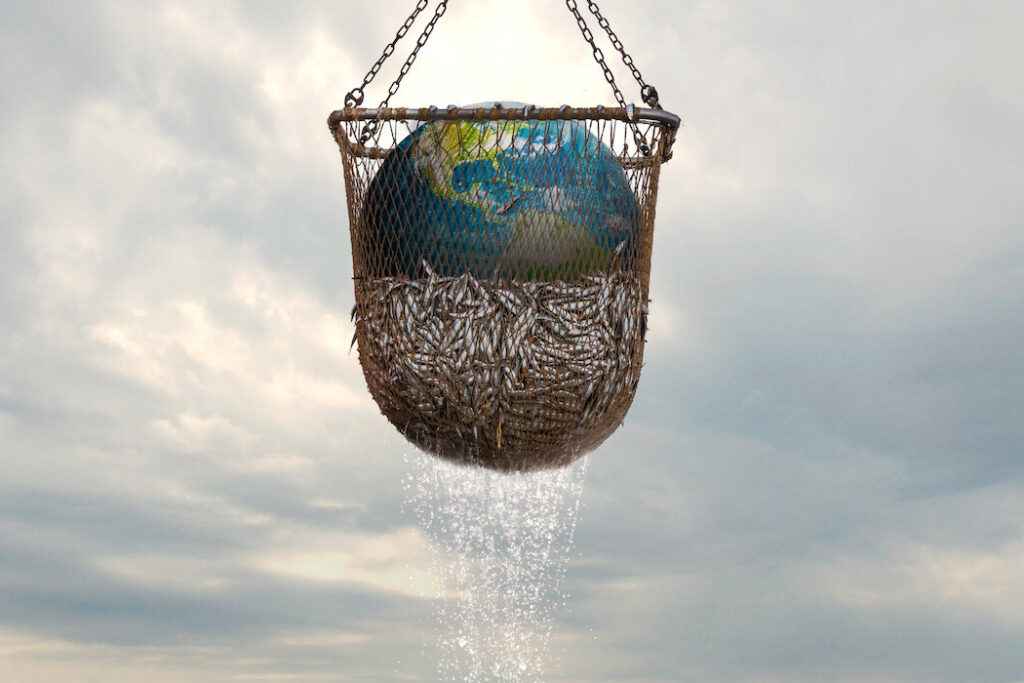A cause for investigation
“Seaspiracy” investigates the exploits of the billion-dollar, global fishing industry operating under the influence of bureaucrats and greedy, for-profit organizations. Director Ali Tabrizi and Lucy Tabrizi track down several organized units in the world exercising unethical and illegitimate control over marine ecology. What comes to the surface following risky investigations are terrifying truths surrounding disruption of marine ecosystems, violation and overriding of environmental laws, and modern sea slavery.
After “Cowspiracy” and “What the Health,” Kip Anderson’s “Seaspiracy” is the third nature documentary to lead the way for A.U.M. Films & Media. Maintaining its predecessors’ cinematic approach, “Seaspiracy” combines recorded footage, cross-media information, and in-person interviews to analyze its subject and arrive at plausible conclusions.
Despite having a slightly complex manner of approaching its multi-pronged topic, the film’s direction doesn’t look haphazard. Prominent oceanographers, scientists, and journalists join “Seaspiracy” in its mission to witness and record breakthrough evidence of marine destruction. However, the filming and documenting carried far bigger risks this time; we see investigations cross borders and invite a myriad of anticipated troubles for the makers of the film.
No risk, no reward
The documentary follows a long voyage of curious findings; it analyzes the impact of tons of harmful activities and practices destroying marine ecosystems. It takes into its crosshairs include commercial whaling, extinction of several fish species, overfishing, and plastic waste in the oceans.
Challenging the legality of many of such damaging activities, the documentary confronts the systems that are sitting at the top. It puts forth heartbreaking evidence to explain what’s really happens to our oceans when we consume seafood, watch a dolphin circus, or make our seas dumping grounds for plastic waste.
Moreover, while filming, Director and star Ali Tabrizi gets involved in some bold but unsafe acts that not only threaten his ambitious project but also put his life at stake. “You should stop filming,” advises a human captive on a large fishing boat in Thailand when Ali asks him if there are any safety concerns for him regarding filming in those locations. But Ali’s decision to continue despite the dangers is exactly what merits this movie the added respect and appreciation.

Progressing through the film, although we learn about specific global locations witnessing horrible marine activities, the doc lays stress on the bigger picture—the global environmental issue affecting everyone. It doesn’t distinguish the oceans or seas as belonging to whatever countries they fall in; it identifies them as a common heritage and responsibility of every human on Earth. Though the movie sticks slightly more to problems than solutions, it does leave us with a mission to embark on.
At an opportune time
A film like “Seaspiracy” hit the screens at probably the best time. Don’t expect it to be another boring documentary that will slap you with a bunch of facts; it is instead a frontrunner of a bold legacy built around a vision. It goes straight to its point and accomplishes its downright purpose—something even big-budget fiction fails to do these days.
Through its fact-based evidence and unmistakable conclusions, it presents a harsh but true reality of environmental dominance practised by humankind. It doesn’t stray alone in explaining alarming environmental situations, but invites the audience to raise a voice for the same. To say the least, the film is nothing short of a wake-up call for the world to act fast before it’s too late.
*Disclaimer: “Seaspiracy” contains visuals of animal harm. Viewer discretion is advised.


